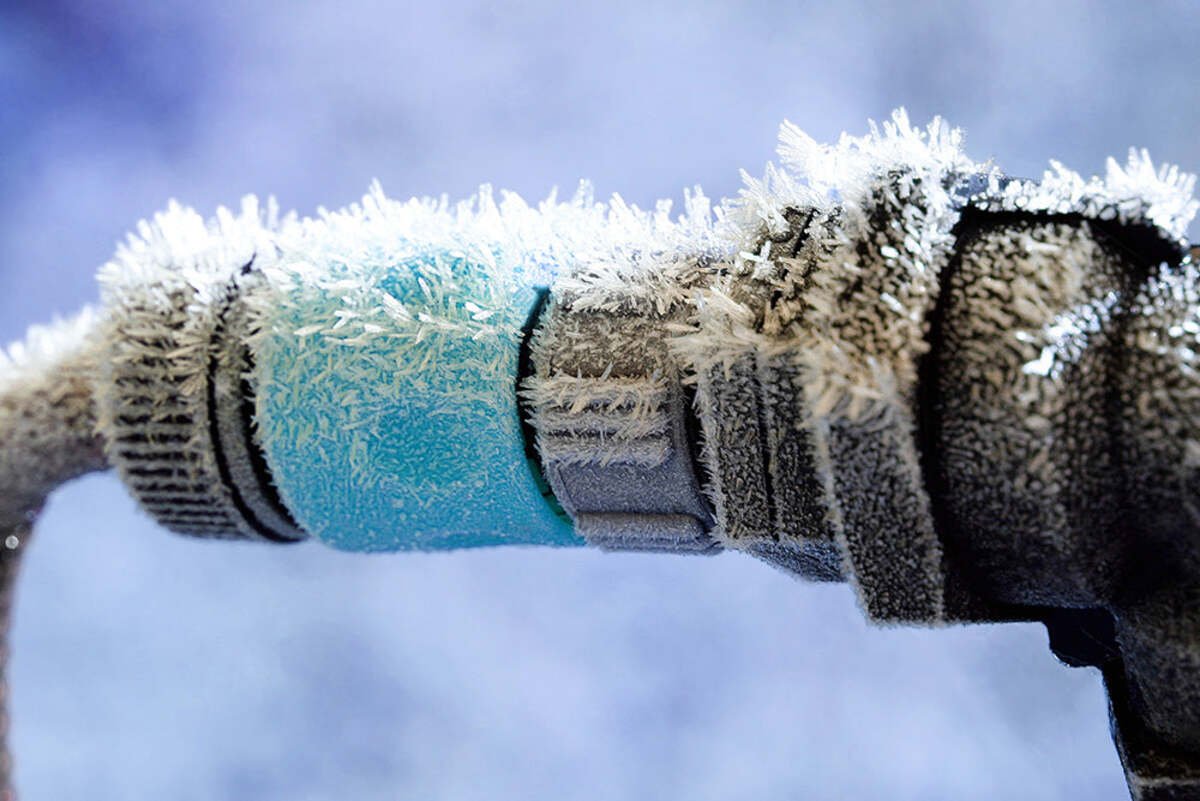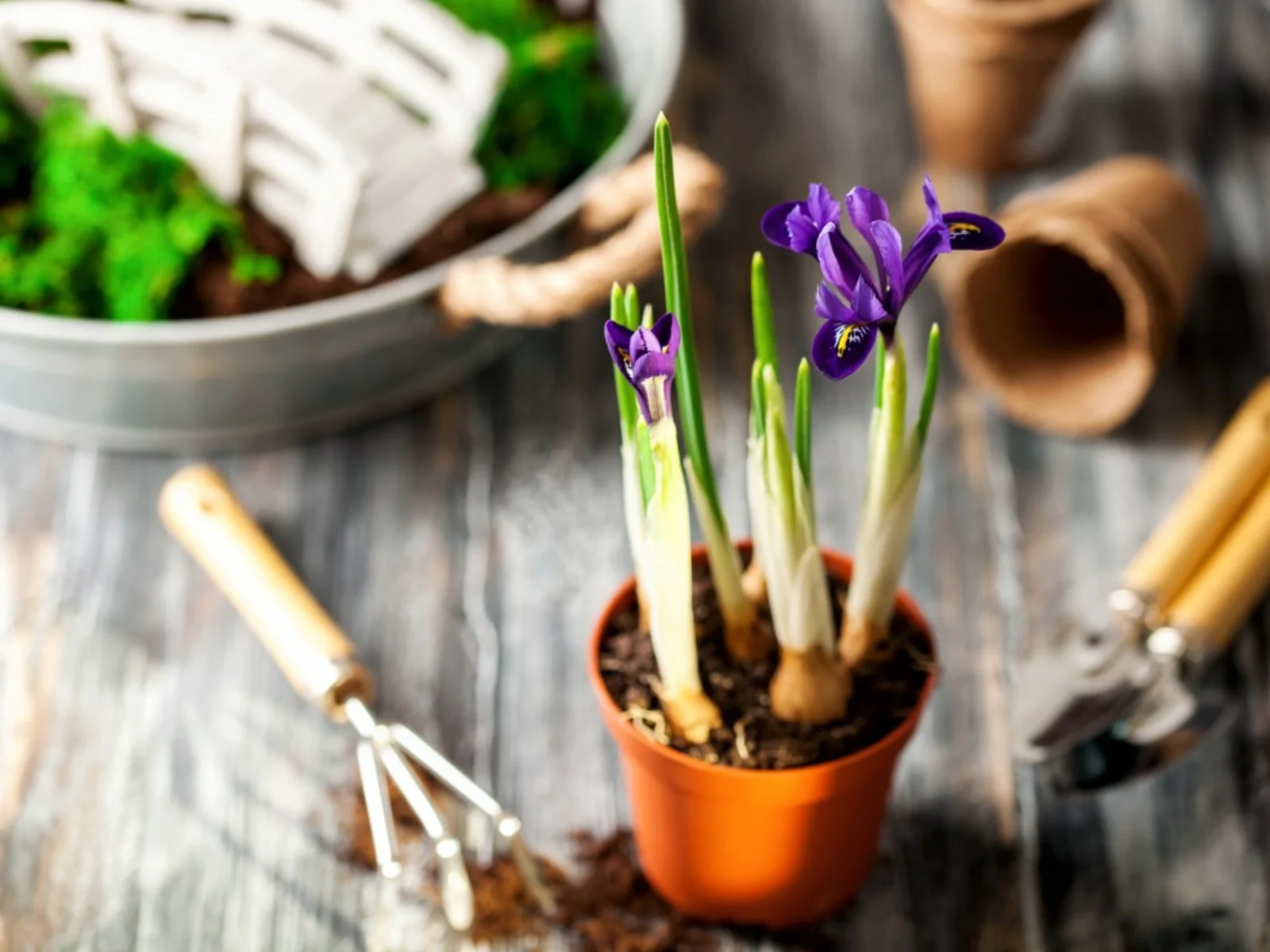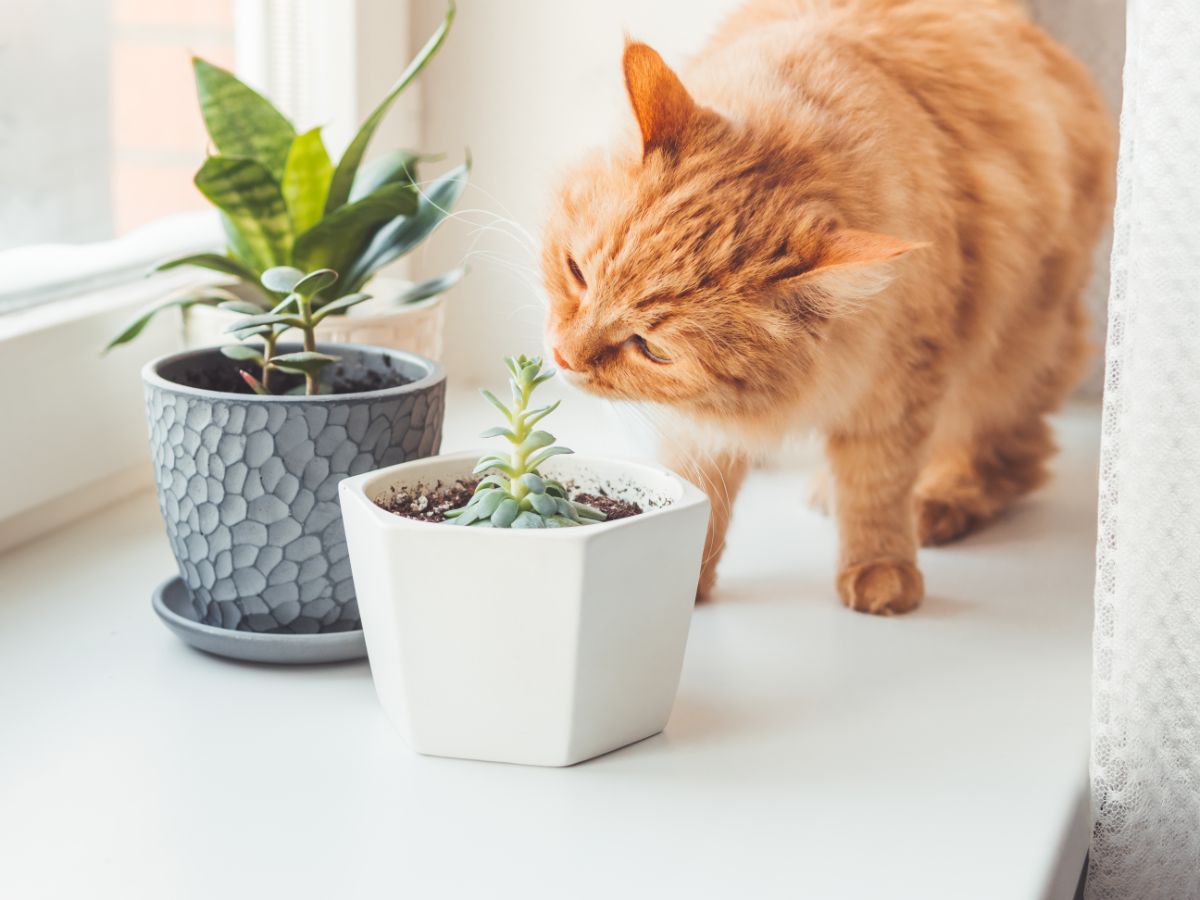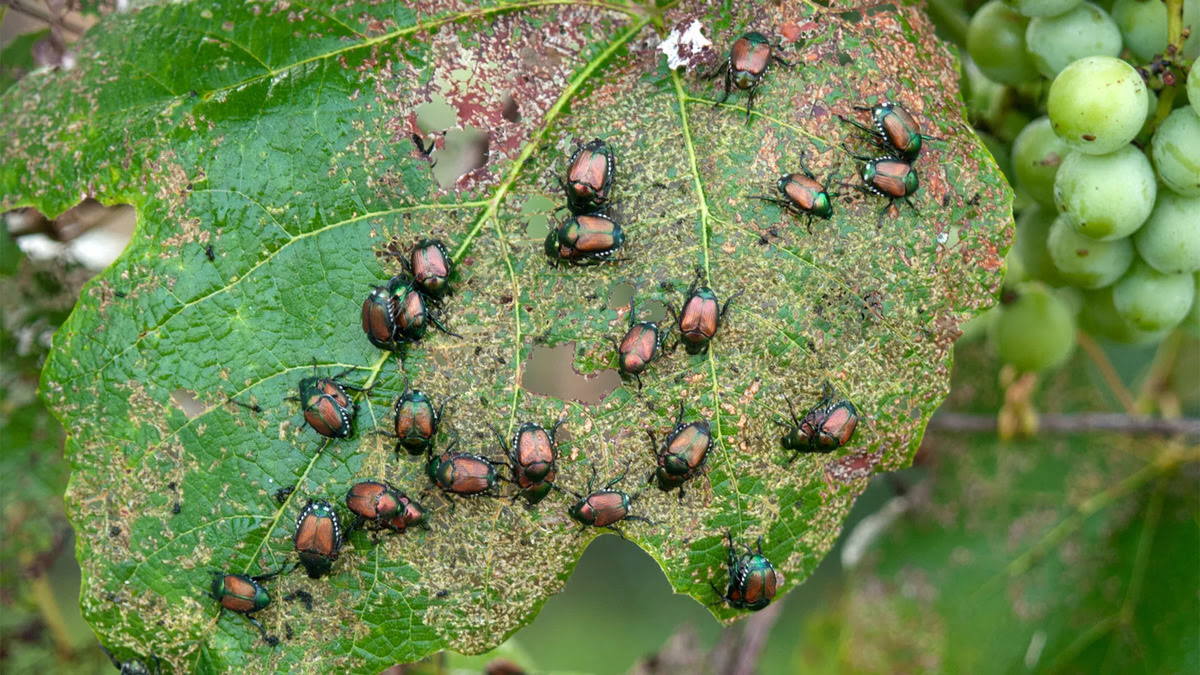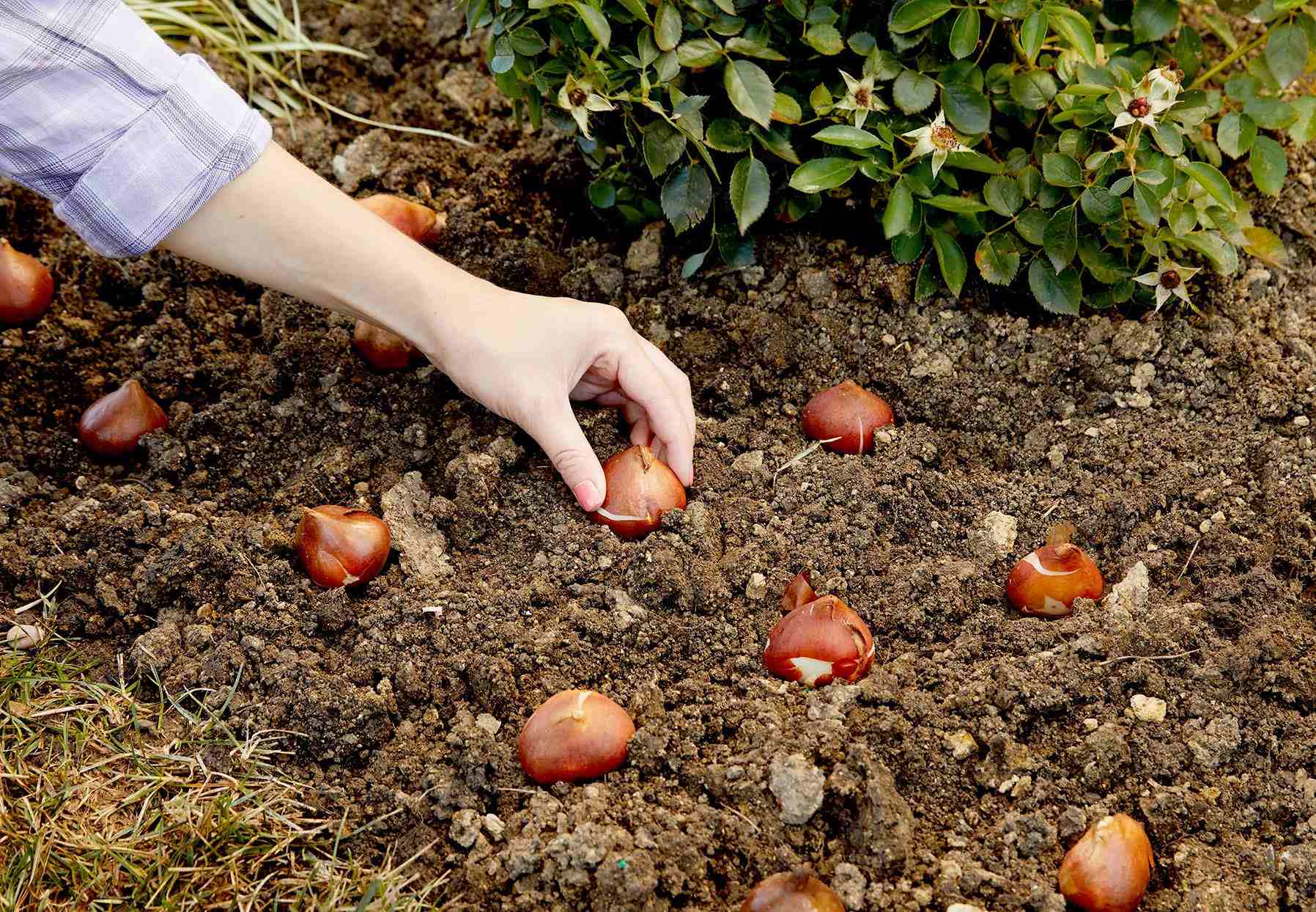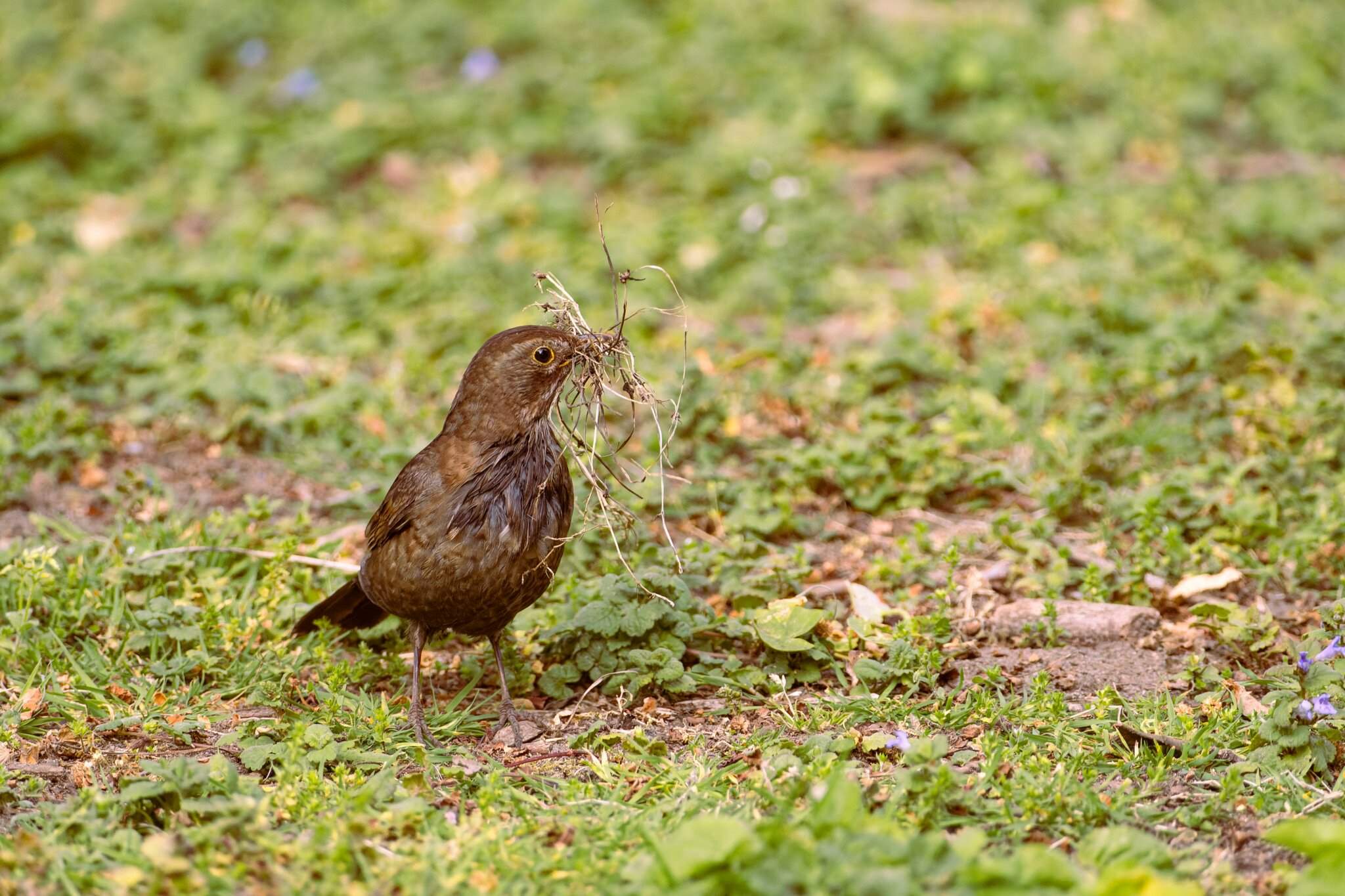Home>Gardening Techniques>Plant Care>How To Keep Squirrels From Eating Bulbs


Plant Care
How To Keep Squirrels From Eating Bulbs
Modified: January 24, 2024
Learn effective plant care tips to keep your bulbs safe from squirrels. Prevent squirrel damage and enjoy a thriving garden with our expert advice.
(Many of the links in this article redirect to a specific reviewed product. Your purchase of these products through affiliate links helps to generate commission for Chicagolandgardening.com, at no extra cost. Learn more)
Table of Contents
Introduction
Welcome to all plant enthusiasts! Whether you are an experienced gardener or just starting out, you know that keeping your plants healthy and thriving requires constant care and attention. However, there is one common obstacle that many gardeners face: squirrels. These mischievous creatures have a knack for digging up and devouring bulbs, leaving you frustrated and with bare patches in your garden.
But fear not! In this article, we will delve into the behavior of squirrels and the types of bulbs they are most likely to target. We will explore natural methods to deter these furry invaders and discuss the use of physical barriers and chemical solutions for squirrel control. Additionally, we will share tips on creating a squirrel-proof garden design to minimize the chances of bulb destruction.
By understanding the behavior of squirrels and implementing effective measures, you can safeguard your bulbs and enjoy a beautiful, thriving garden. So, let’s dig in and explore how to keep squirrels from eating your beloved bulbs!
Understanding the Behavior of Squirrels
Squirrels, with their bushy tails and energetic antics, can be a delightful sight in our parks and gardens. However, when it comes to your precious bulbs, their behavior can quickly become a nuisance. Understanding why squirrels target bulbs can help us in devising effective strategies to keep them at bay.
Firstly, it’s important to note that squirrels have a natural instinct to forage for food, especially during periods of scarcity. Bulbs, with their nutrient-rich and energy-packed cores, are a tempting feast for these furry creatures. Squirrels can sense the bulbs beneath the earth’s surface, and their keen digging skills allow them to unearth and devour them.
Furthermore, certain types of bulbs, such as tulips, crocuses, and daffodils, are particularly appealing to squirrels due to their high carbohydrate content. Squirrels are also attracted to freshly planted bulbs, as the disturbed soil emits a distinct scent that signals a potential food source.
Squirrels are known to have a burst of activity during the early morning and late afternoon, which are prime time for bulb destruction. They are agile climbers, allowing them to access elevated planters or tree branches where they can detect and raid bulbs. Their sharp teeth and nimble paws make quick work of digging, exposing your bulbs to potential damage.
In addition to their appetite for bulbs, squirrels may also use them for nesting. They may dig up your bulbs to create burrows or use them as bedding material. Therefore, it’s essential to understand these behaviors in order to effectively protect your bulbs from squirrel interference.
Now that we have a better understanding of squirrel behavior and their affinity for bulbs, let’s explore various methods to deter them and safeguard your garden treasures.
Types of Bulbs Affected by Squirrels
Squirrels have a voracious appetite for certain types of bulbs, making it crucial to identify which plants are most at risk. By understanding the bulbs that squirrels are more likely to target, you can take specific measures to protect them. Here are some common bulbs that are frequently affected by squirrels:
- Tulips: Tulip bulbs are a favorite among squirrels due to their high sugar content. Squirrels can quickly detect the scent of these bulbs and dig them up, leaving you with empty flower beds.
- Crocuses: These early-blooming flowers are also a delicacy for squirrels. Their small size and shallow planting depth make them an easy target for these agile diggers.
- Daffodils: While daffodils have a bitter taste and are less appealing to squirrels, they are not entirely immune to their bulb-munching tendencies. In times of scarcity, squirrels may still dig up daffodil bulbs.
- Hyacinths: The fragrant blooms of hyacinths are irresistible to both humans and squirrels. Their bulbs, with their energy-rich composition, make for a tempting treat.
- Alliums: The onion-like scent of allium bulbs can actually repel squirrels to some extent. However, if food sources are scarce, squirrels may still dig them up.
It’s important to note that these are just a few examples of bulbs that squirrels commonly target. Different regions and climates may have other bulb varieties that are also vulnerable. It’s always a good idea to research the specific bulbs you have planted or plan to plant in your garden to determine their attractiveness to squirrels.
Now that we have identified the types of bulbs that are frequently affected by squirrels, let’s explore effective methods to deter these furry pests and protect your beloved bulbs.
Natural Methods to Deter Squirrels
When it comes to protecting your bulbs from squirrels, it’s always best to opt for natural and environmentally friendly methods. Here are some effective natural deterrents to help keep squirrels at bay:
- Repellent Plants: Planting certain species of flowers, herbs, or vegetables can deter squirrels from your garden. Plants like daffodils, marigolds, and lavender have a strong smell that squirrels find unpleasant. Additionally, squirrel-resistant bulbs, such as fritillaries or snowdrops, can discourage these critters from digging.
- Spicy Solutions: Squirrels have a strong sense of smell, and they dislike the aroma of certain spices. Sprinkling cayenne pepper, chili powder, or garlic powder around your bulbs can create a barrier that deters squirrels. Be sure to reapply these spices after rainfall or watering.
- Natural Predators: Encouraging natural predators, such as hawks or owls, in your garden can help keep squirrel populations in check. Installing bird feeders or birdhouses can attract these predators, creating a natural deterrent for squirrels.
- Squirrel-Proof Barriers: Using physical barriers can effectively protect your bulbs. Place wire mesh or hardware cloth over the garden beds, ensuring they extend at least several inches below the soil surface to prevent squirrels from digging underneath. Alternatively, planting bulbs in containers and elevating them above ground can make it difficult for squirrels to reach them.
- Ultrasonic Devices: Ultrasonic devices emit high-frequency sounds that are unpleasant to squirrels but are harmless to humans and pets. These devices can be placed strategically around your garden to repel squirrels.
Remember, while these natural methods can be effective, they may not guarantee 100% squirrel avoidance. It’s important to employ multiple deterrents and combine them with other preventive techniques for optimal results.
Now that we have explored natural methods to deter squirrels, let’s discuss the use of physical barriers and chemical solutions as additional measures to protect your bulbs.
Using Physical Barriers to Protect Bulbs
Physical barriers can be highly effective in deterring squirrels from reaching your precious bulbs. By creating obstacles that squirrels cannot easily overcome, you can safeguard your bulbs and ensure they have a chance to grow and bloom. Here are some effective methods of using physical barriers to protect your bulbs:
- Wire Mesh or Hardware Cloth: Covering your garden beds with wire mesh or hardware cloth is a reliable way to keep squirrels away from your bulbs. Ensure that the mesh is buried at least several inches below the soil surface to prevent squirrels from digging underneath. Secure the mesh firmly to prevent any gaps that squirrels might exploit.
- Chicken Wire Cages: Building cages using chicken wire around your bulb plantings can create a protective barrier. Make sure the bottom of the cage is securely fastened to the ground, and the top is covered to prevent squirrels from climbing in.
- Bulb Planting Baskets: Planting your bulbs in special bulb planting baskets can deter squirrels. These baskets have mesh sides that allow the bulbs to grow and thrive while preventing squirrels from reaching them. Place the baskets in your garden beds or containers before planting your bulbs.
- Mulch: Applying a layer of mulch around your bulbs can make it more challenging for squirrels to dig. Use materials like gravel, stones, or coarse pine needles that are difficult for squirrels to move. Additionally, mulch can help regulate soil temperature and moisture, benefiting the overall health of your bulbs.
- Elevated Planters: Planting bulbs in elevated planters or hanging baskets can be an effective way to keep squirrels at bay. Choose planters that are tall enough to prevent squirrels from reaching the bulbs and ensure they provide adequate drainage for the plants.
It’s essential to regularly monitor and maintain the physical barriers to ensure their effectiveness. Check for any signs of damage or gaps that squirrels might exploit and make necessary repairs or adjustments.
While physical barriers can provide significant protection, combining them with natural deterrents and other preventive measures will increase the chances of successfully deterring squirrels from your bulbs.
Now that we have discussed the use of physical barriers, let’s explore chemical solutions for squirrel control.
Chemical Solutions for Squirrel Control
If natural and physical deterrents are not yielding the desired results, you may consider using chemical solutions as an additional measure to control squirrel activity in your garden. It’s important to note that chemical solutions should be used with caution and as a last resort. Here are some chemical options to consider:
- Squirrel Repellent Sprays: There are commercially available squirrel repellent sprays that emit strong odors or tastes that squirrels find unpleasant. Follow the instructions on the product label and apply the spray to the areas where squirrels are active or around your bulb plantings. Reapply after rainfall or as directed.
- Ammonia Soaked Rags: Squirrels dislike the strong smell of ammonia. Soaking rags in ammonia and placing them strategically around your garden can help deter squirrels. Be cautious when handling ammonia and keep it away from children, pets, and plants.
- Predator Urine: Squirrels are wary of potential predators. Predator urine, such as that of foxes or coyotes, can be purchased in the form of granules or liquid. Sprinkle or spray the urine in areas where squirrels are active to create the illusion of a predator presence.
- Cayenne Pepper Spray: Squirrels have an aversion to the spicy compound capsaicin found in cayenne pepper. Create a homemade spray by mixing water and cayenne pepper powder and apply it to areas where squirrels frequent. Remember to reapply after rainfall.
- Mothballs or Naphthalene: The strong smell of mothballs can deter squirrels. Place mothballs or naphthalene flakes near your bulb plantings or in areas where squirrels are causing damage. However, exercise caution as mothballs are toxic and should be kept away from children, pets, and edible plants.
It is important to follow the instructions and guidelines provided by manufacturers when using chemical solutions. Always consider the impact on the environment and take necessary precautions to protect other wildlife, pets, and beneficial insects in your garden.
While chemical solutions can provide temporary relief from squirrel activity, it is crucial to address the underlying factors that attract squirrels to your garden. Employing a combination of natural, physical, and chemical deterrents alongside a squirrel-proof garden design will yield the best results in protecting your bulbs.
Now that we have explored chemical solutions for squirrel control, let’s move on to creating a squirrel-proof garden design to minimize bulb damage.
Creating a Squirrel-Proof Garden Design
Designing your garden with squirrel prevention in mind can significantly reduce the chances of bulb damage and make it less enticing for these furry invaders. Here are some tips for creating a squirrel-proof garden design:
- Strategic Plant Placement: Consider planting squirrel-resistant plants alongside your bulbs. Focus on species with strong scents, prickly textures, or bitter tastes that squirrels find unappealing. This can help deter squirrels from your entire garden.
- Companion Planting: Intercropping bulbs with plants that naturally repel squirrels can provide an added layer of protection. For example, placing garlic or onions near your bulb plantings can help deter squirrels due to their strong scent.
- Vertical Gardening: Squirrels are agile climbers, so incorporating vertical elements in your garden design can make it more challenging for them to access your bulbs. Consider using trellises, arbors, or tall decorative structures that deter squirrels from reaching your plants.
- Rock Features: Adding decorative rocks or gravel around your bulb plantings can deter squirrels as they prefer soft soil for digging. The uneven surface will make it more difficult for them to dig up your bulbs.
- Water Features: Installing a small pond, fountain, or birdbath in your garden can act as a distraction for squirrels. Providing a water source may encourage them to focus their attention away from your precious bulbs.
- Secure Garden Borders: Create physical barriers around your garden by installing fences or walls that are difficult for squirrels to penetrate. Ensure that the barriers extend below ground level to prevent burrowing.
- Regular Cleanup: Remove fallen fruits, nuts, or seeds from your garden promptly. These food sources can attract squirrels and encourage them to explore your garden in search of more goodies.
By implementing these design strategies, you can create a garden space that is less inviting and challenging for squirrels to navigate. However, it’s important to note that no garden is entirely squirrel-proof, and vigilance is key in deterring these persistent creatures.
Remember to regularly inspect your garden for signs of squirrel activity, adjust and reinforce physical barriers as needed, and consistently apply natural deterrents to maintain a squirrel-resistant environment.
With a carefully planned and squirrel-proof garden design, your bulbs will flourish, and you can enjoy the beauty of your garden without the worry of squirrel damage.
Conclusion
Keeping squirrels from eating your bulbs can be a challenge, but by understanding their behavior and implementing the right strategies, you can protect your garden treasures. Throughout this article, we have explored various methods to deter squirrels naturally, such as using repellent plants, spicy solutions, natural predators, and physical barriers. We have also discussed the use of chemical solutions as a last resort and the importance of creating a squirrel-proof garden design.
Remember to choose squirrel-resistant bulb varieties, employ a combination of deterrents, and regularly monitor and maintain physical barriers to ensure their effectiveness. Additionally, companion planting, vertical gardening, and creating distractions like water features can further discourage squirrels from targeting your bulbs.
It’s important to note that no method is foolproof, and an occasional visit from a determined squirrel may still occur. However, with persistence and an integrated approach, you can greatly reduce squirrel damage and enjoy a beautiful, thriving garden.
So, roll up your sleeves, apply these tips, and get ready to protect your bulbs from those mischievous squirrels. Your garden will thank you with vibrant blooms and a squirrel-free sanctuary!
